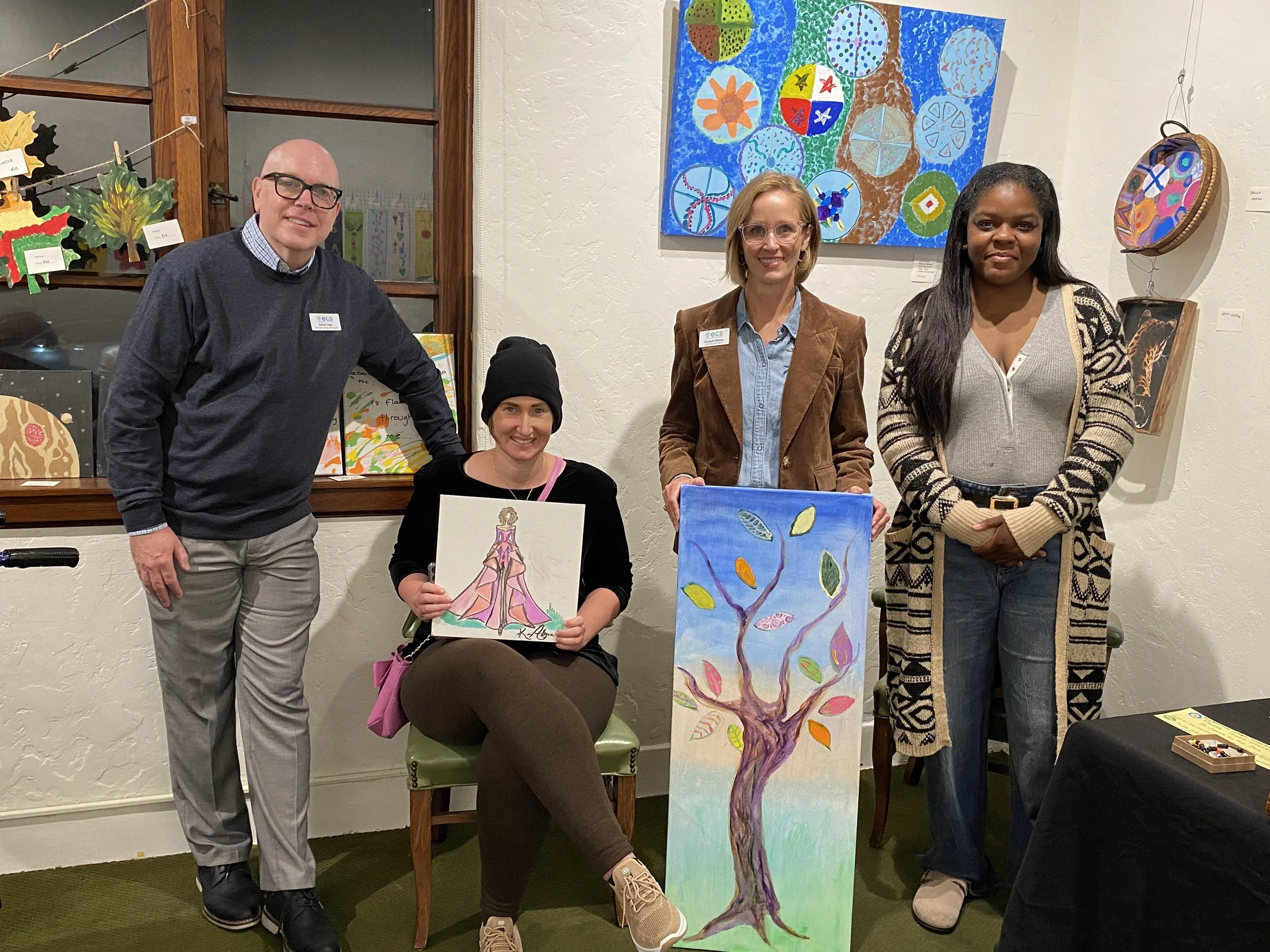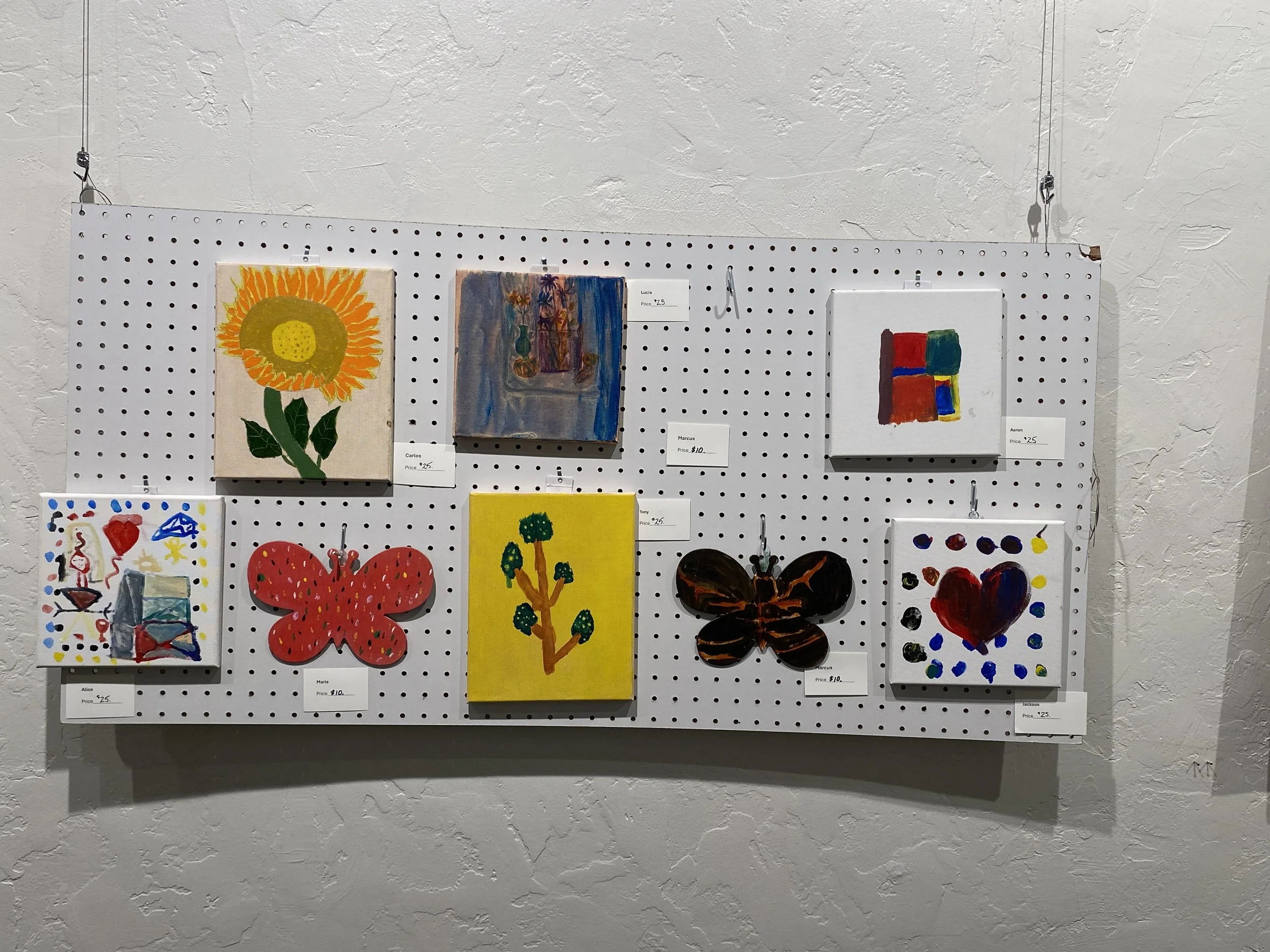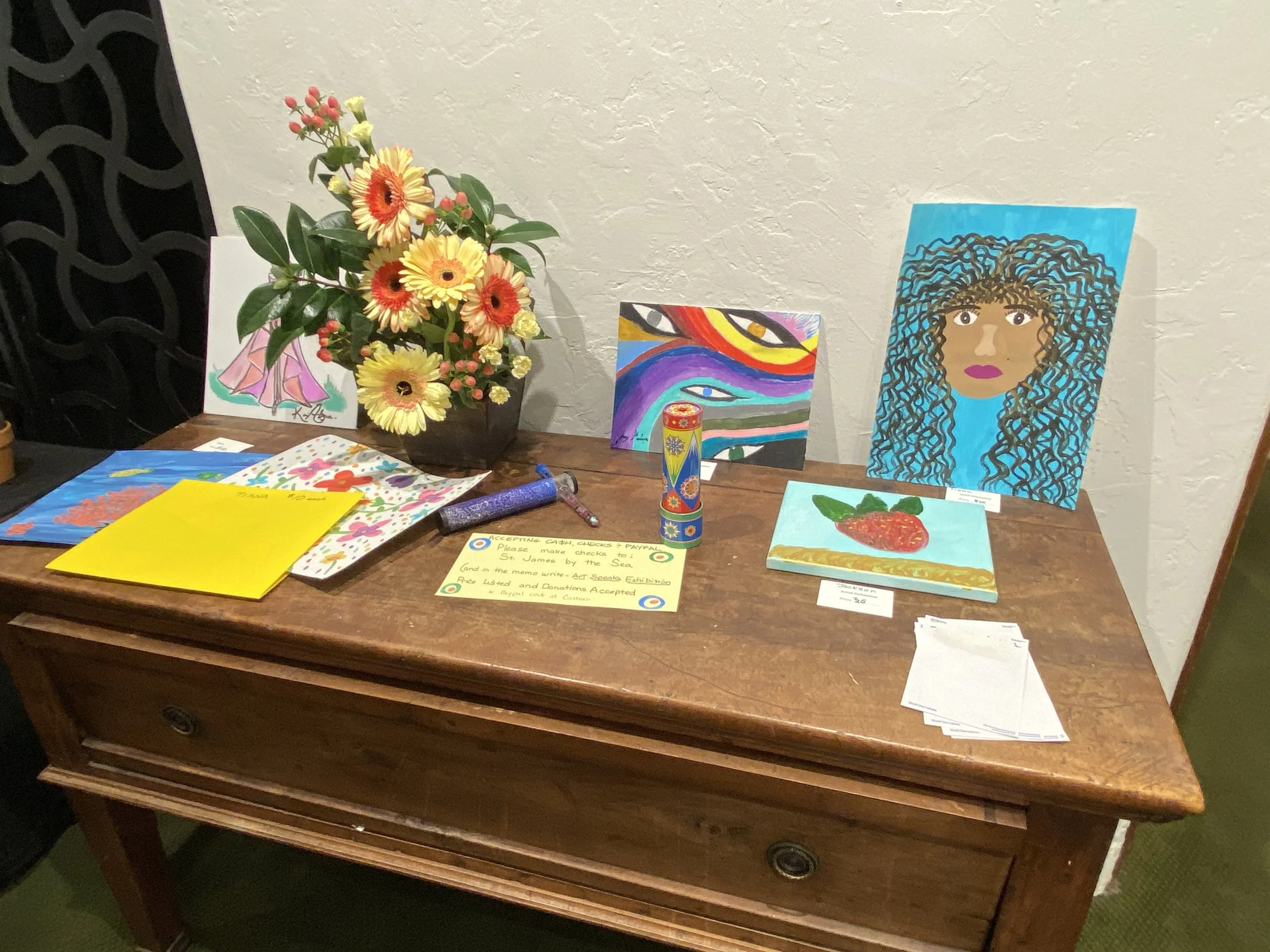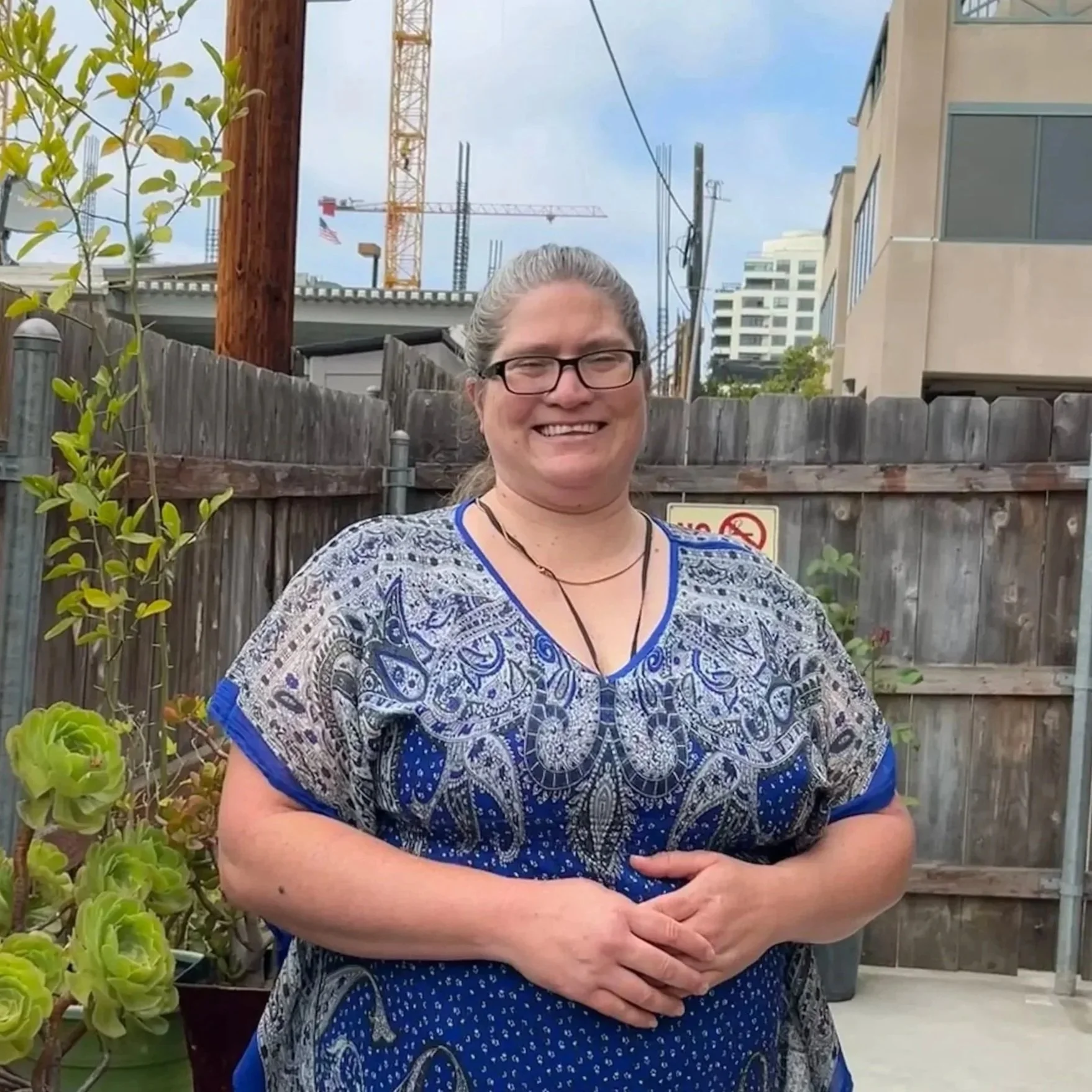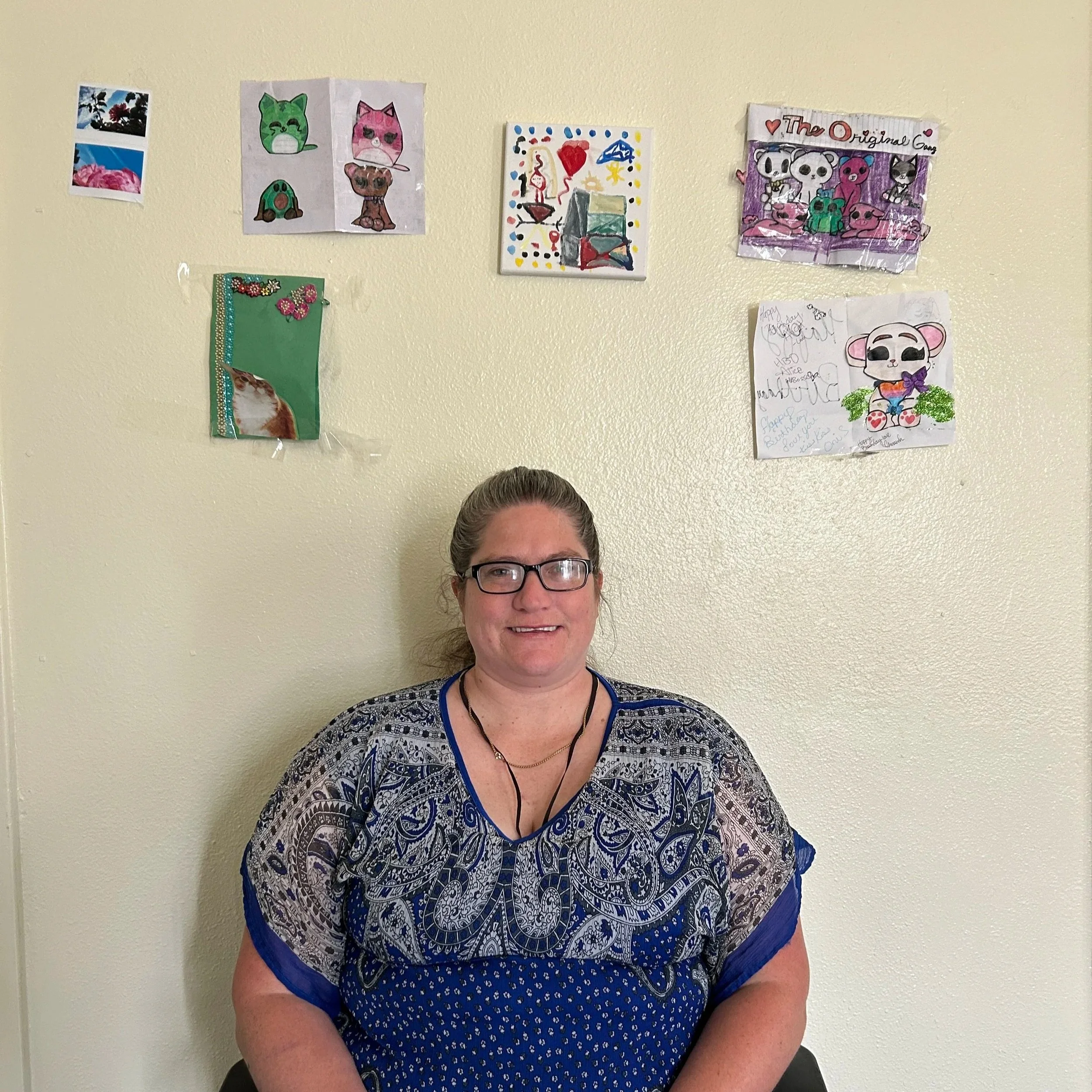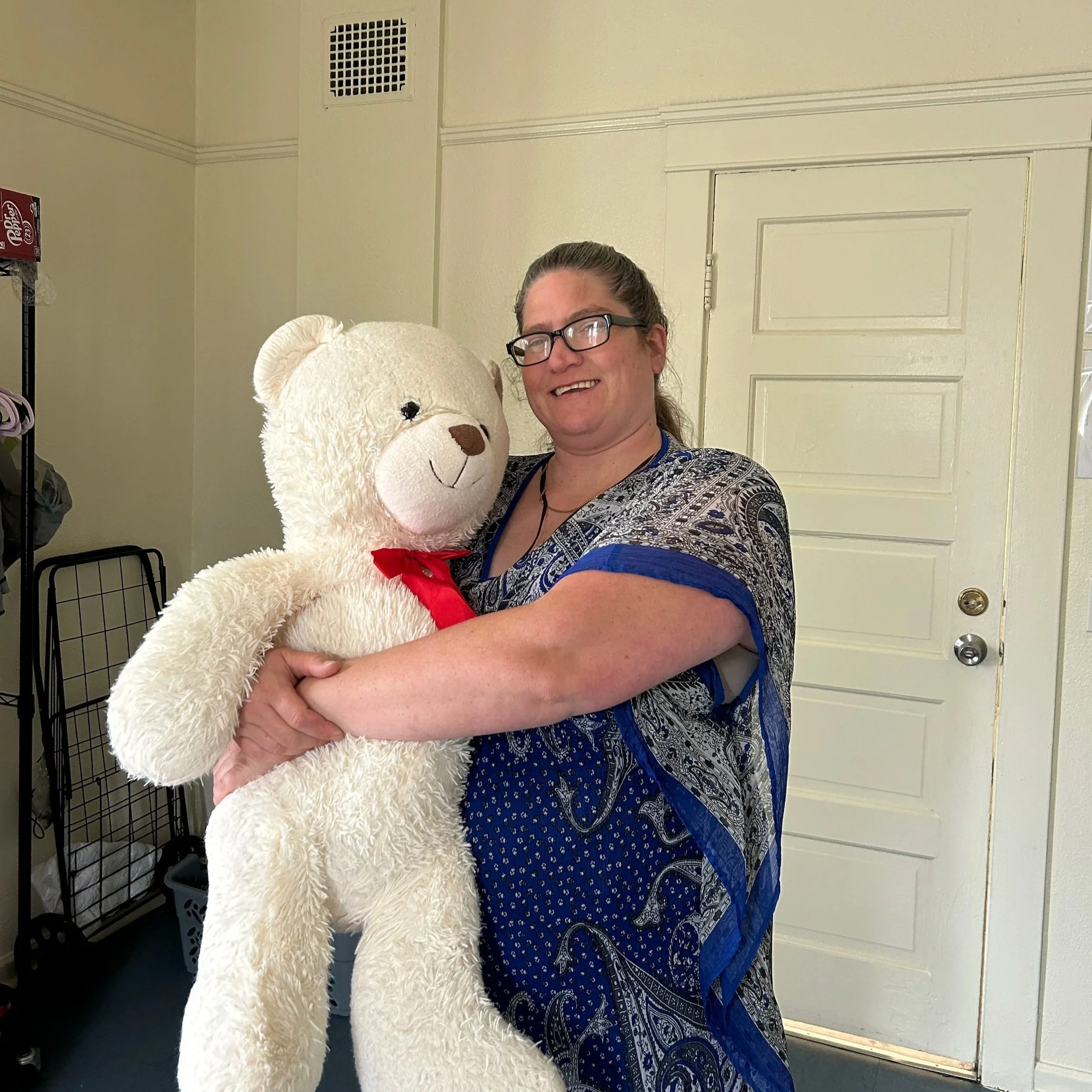Uptown Safe Haven residents and staff celebrate the art show and the healing it represents. October 2025.
La Jolla, CA – Art is healing. It provides a space for people to express and process difficult feelings or experiences in a calm and comforting way. According to Psychology Today, engaging with art challenges the brain, helping to break behavior patterns set by depression, anxiety, and trauma. This allows healing to take place.
At ECS Uptown Safe Haven (UTSH), residents frequently create art. Last Friday, their creativity was displayed at the annual Art Speaks: The Healing Power of Art exhibition. The event showed off the unique artwork of each resident, but it also displayed their incredible healing journeys.
ECS’ CEO and Development team pose with a resident and her art. October 2025.
The event was held at St. James Gallery by-the-Sea in La Jolla. UTSH residents’ original pieces were displayed for guests to peruse. The art was also available for purchase, with all proceeds directly benefiting the artist.
Guests had the chance to meet UTSH residents, staff, and others passionate about breaking barriers for adults experiencing homelessness.
A heartfelt thank-you to the St. James Arts Committee for providing the delicious refreshments and to everyone who joined us for this meaningful celebration of art and community.
To learn more about Uptown Safe Haven, visit www.ecscalifornia.org/uptown-safe-haven-1.
Resident artwork hung up for display. October 2025.
Artwork at the exhibition is made up of a range of different images and mediums. October 2025.


